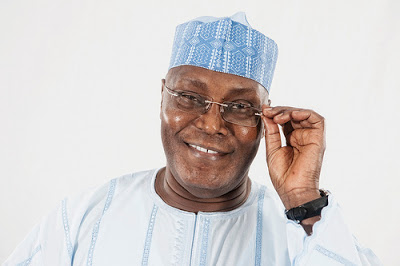The Coalition for United Southern Nigerian Nationalities (CUSNN) has endorsed the candidate of the Peoples Democratic Party (PDP) Atiku Abubakar for President.
In a statement signed by 12 officials of the group, and made available to newsmen, the group urged Nigerians to vote Atiku in order to ‘pull back the country from the precipice’.
Below is the detailed statement of the group:
On Saturday, February 16 and March 2, 2019, Nigerians will, for the fifth time in the historic 20-year period of uninterrupted democracy since 1999, go to the polls to elect their new leaders.
Ordinarily, this remarkable feat calls for celebration. But, at no time has the augury of democracy been so starkly dark in our beleaguered country than now.
Saddled with a leadership that has a provincial worldview, the country is more divided today than ever.
Nepotism has been elevated to a state policy and Nigeria has become an exemplar of a country in the Hobbesian state of war where life is short, nasty and brutish.
Something urgent and drastic must be done to pull back the country from the precipice and the 2019 elections present us that unique opportunity.
The Coalition for United Southern Nigerian Nationalities (CUSNN) an association with the mission to unite Southern nationalities as a first step towards the possibilities of driving a common purpose among all Nigerian peoples by creating a platform for the promotion of socio-cultural, political and economic cooperation and collaboration recognises that fact.
We are strongly of the view that a robust and vibrant Nigeria of federating and consenting ethnicities, united around a common purpose of development and prosperity, harnessing human capital and natural resources for education, industry and development, is possible. We also believe that this dream can only be realised in a Restructured Nigeria.
The country as it is today is not working because we have all lived on a dangerous structural fault-line for too long.
Restructuring, therefore, is both an imperative and an existential need.
It is only a Restructured Nigeria where power is devolved to the federating units that will create the best framework for a workable political entity despite her diversity.
As Professor Chukwuma Soludo, former CBN Governor, presciently noted in his speech at the maiden lecture of the Ndigbo Lagos Foundation on Wednesday, August 1, 2018, the 2019 elections will be a referendum on restructuring because the concept is not just a political agitation, it is the foundational plan for Nigeria’s prosperity without oil.
And this is where our interest aligns with that of Alhaji Atiku Abubakar, the candidate of the Peoples Democratic Party (PDP), who has made the issue of restructuring the centre-piece of his aspiration. His vision for Nigeria aligns fundamentally with ours.
We, therefore, endorse and adopt him as our presidential candidate and advice all men and women of goodwill of Southern Nigeria to do same. Nigeria’s story ought to and should be better than what it is today.
Long live the Federal Republic of Nigeria
Signed
Chino Obasi
Director of Public Communication
Mr. Kanayo Esinulo
Chairman
Mr. Kayode Oluwa
Vice Chairman
Dr. Monday Oronsaye Osafure
General Secretary
Mr. Ayoola Oke
Legal Adviser
Rev Eliashib Ime-James
Director of Organisation
Mrs. Kemi Nkechi Fash
Financial secretary
Ms. Eunice Daniels
Director Women Affairs
Pastor Kolawole Opadotun
Treasurer
Mr. Ike Amaechi
Assitant Secretary General
Mr. Tunde Akogun
Director General
Mazi Cornelius Onyeulo
Deputy Director General

 News6 years ago
News6 years ago
 Featured6 years ago
Featured6 years ago
 Boss Picks6 years ago
Boss Picks6 years ago
 Headline6 years ago
Headline6 years ago
 Headline6 years ago
Headline6 years ago
 Headline5 years ago
Headline5 years ago
 Headline6 years ago
Headline6 years ago
 Headline6 years ago
Headline6 years ago














